10 Famous Movies That Secretly Predicted Modern Life
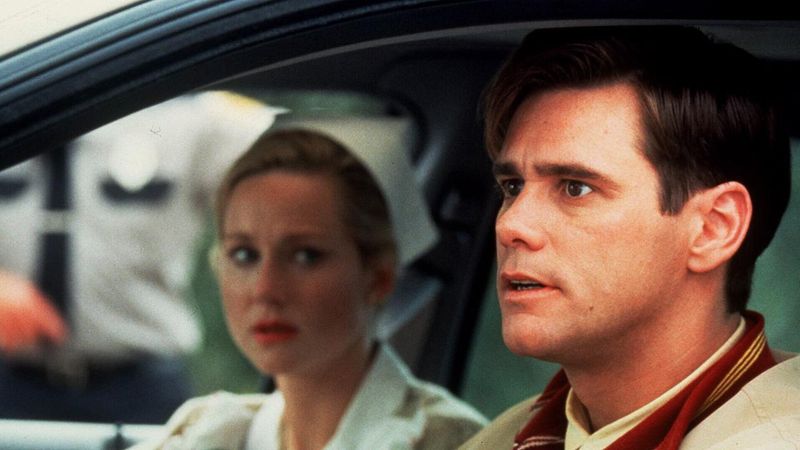
Cinema has long served as a crystal ball, offering glimpses into future possibilities. Some films, intentionally or otherwise, portray ideas and technologies that later become a reality. From the eerie predictions of space travel to the rise of surveillance culture, these movies provide thought-provoking insights into the present day.
This collection of ten films showcases how filmmakers managed to foresee trends and technological advancements, sometimes decades before they materialized. By blurring the line between fiction and reality, these movies highlight the uncanny foresight of their creators, sparking discussions about how life often imitates art in unexpected ways.
1. 2001: A Space Odyssey (1968)

In the vast cosmos, “2001: A Space Odyssey” envisioned a future dotted with technological marvels. The film introduced on-board computers and tablet-like devices, mirroring today’s gadgets. Its depiction of space stations seemed like pure fiction back then.
The vision Stanley Kubrick crafted remains a testament to his imaginative prowess, resonating with modern-day space endeavors. The film’s portrayal of artificial intelligence, embodied by HAL 9000, offers a cautionary tale that continues to influence discussions on AI ethics.
Kubrick’s masterpiece invites us to ponder the implications of technology on human evolution, a dialogue as relevant now as it was decades ago.
2. Blade Runner (1982)
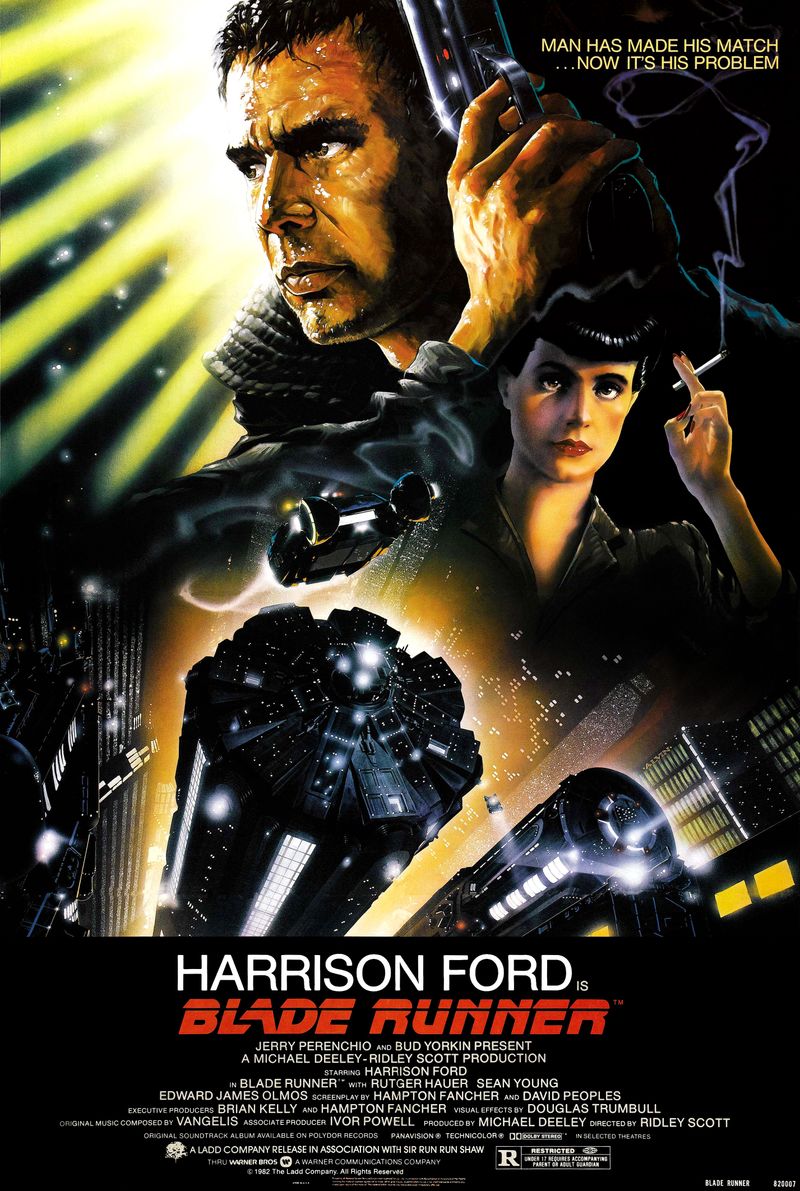
Set against a backdrop of rain-soaked streets and neon lights, “Blade Runner” offers a chilling glimpse into a future where humanity grapples with the implications of genetic engineering. The film deftly explores themes of synthetic life and environmental collapse.
Scott’s portrayal of corporate dominance and societal decay resonates today, reflecting modern fears about unchecked technological advancements. The film’s replicants question what it means to be human, prompting reflections on identity in an era of rapid change.
Through its atmospheric storytelling, “Blade Runner” remains a prescient cautionary tale, urging viewers to consider the ethical dimensions of our technological pursuits.
3. The Truman Show (1998)
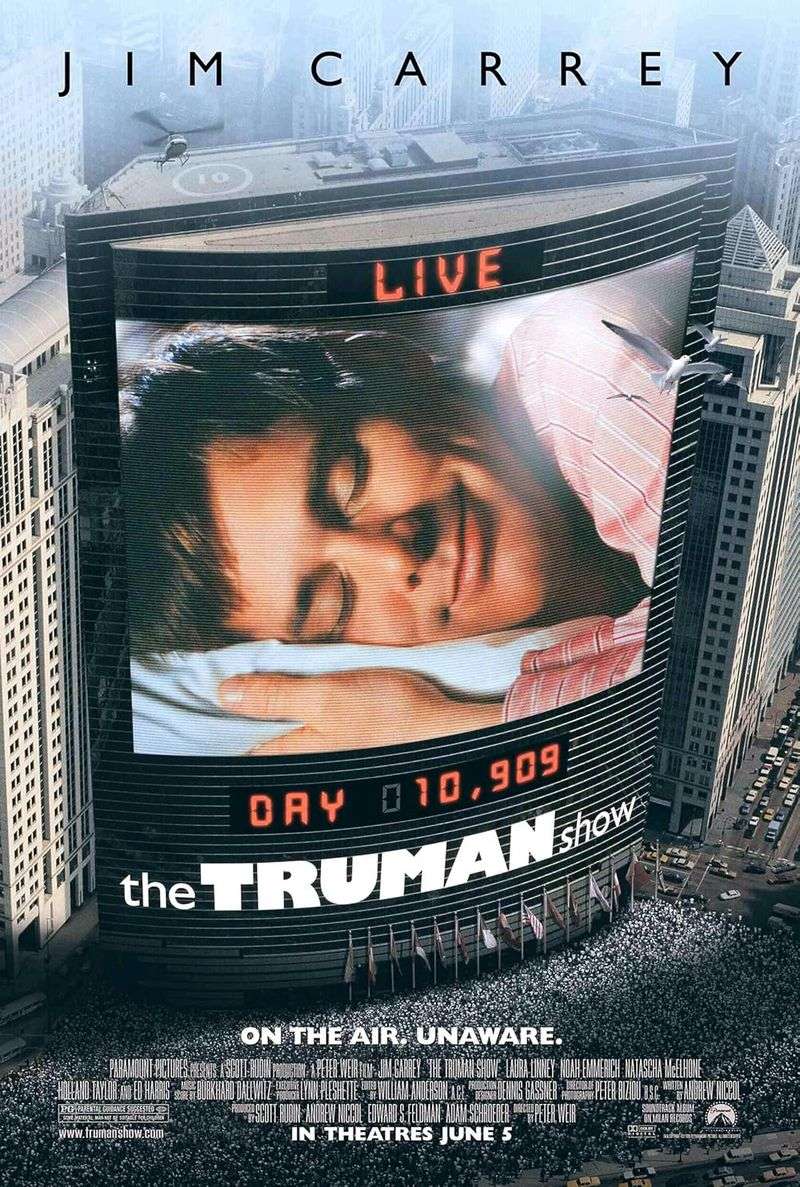
“The Truman Show” captures the unsettling reality of living under constant observation. Truman’s seemingly idyllic life unravels, revealing a world dominated by cameras and curated experiences. This narrative eerily foreshadows today’s reality television and social media culture.
The film explores the boundaries between authenticity and performance, a theme relevant in today’s hyper-connected world. As Truman discovers the truth, viewers are invited to question the nature of their own realities.
Peter Weir’s film challenges audiences to consider the implications of a surveillance-driven society, making it a timeless reflection on privacy and identity in the digital age.
4. Soylent Green (1973)
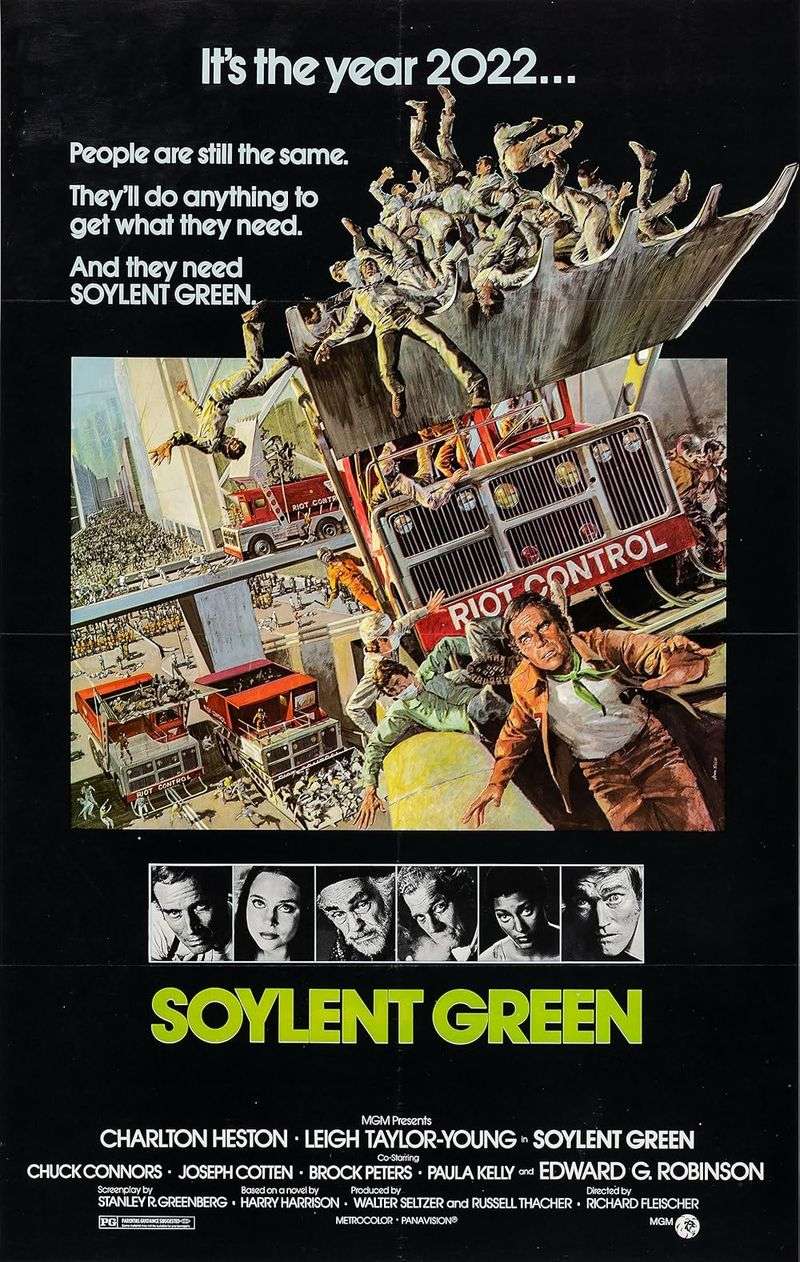
In a world plagued by scarcity, “Soylent Green” paints a dystopian picture of overpopulation and environmental degradation. The film’s haunting vision of a future struggling to sustain its populace resonates with current concerns about climate change and resource management.
As society grapples with dwindling resources, the film’s narrative becomes a poignant warning about the consequences of neglecting environmental stewardship. The infamous revelation about the titular food product serves as a chilling reminder of the lengths humanity might go to survive.
With its stark portrayal of a collapsing world, “Soylent Green” remains a powerful commentary on sustainability and ethics.
5. Back to the Future Part II (1989)
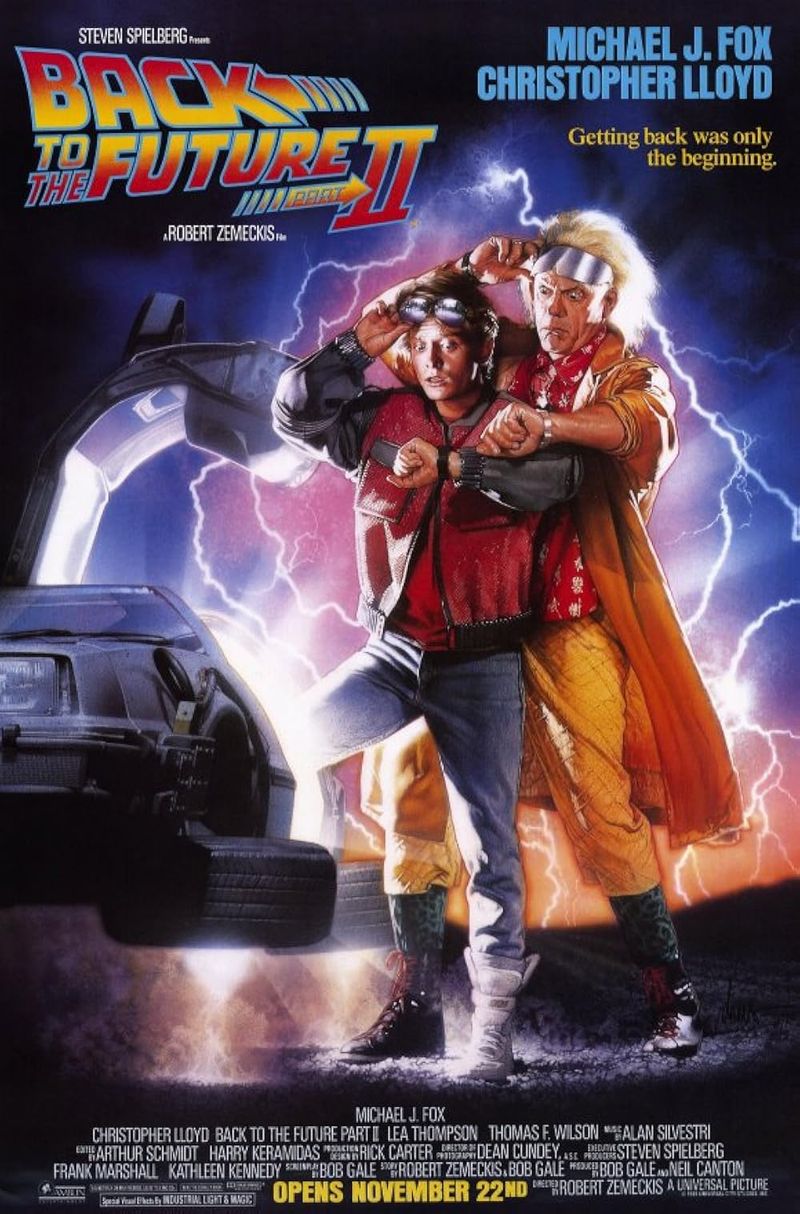
“Back to the Future Part II” takes viewers on a thrilling ride into tomorrow’s world, filled with hoverboards and flying cars. The film’s vision of 2015 surprisingly includes technologies familiar today, like video calls and wearable devices.
Robert Zemeckis’s playful exploration of time travel not only entertains but also provides a snapshot of technological aspirations. The film’s depiction of contactless payments and flat-screens highlights a prescient understanding of digital innovation.
While not all predictions came true, “Back to the Future Part II” captures the excitement and unpredictability of technological progress, leaving viewers to dream of what’s next.
6. Minority Report (2002)
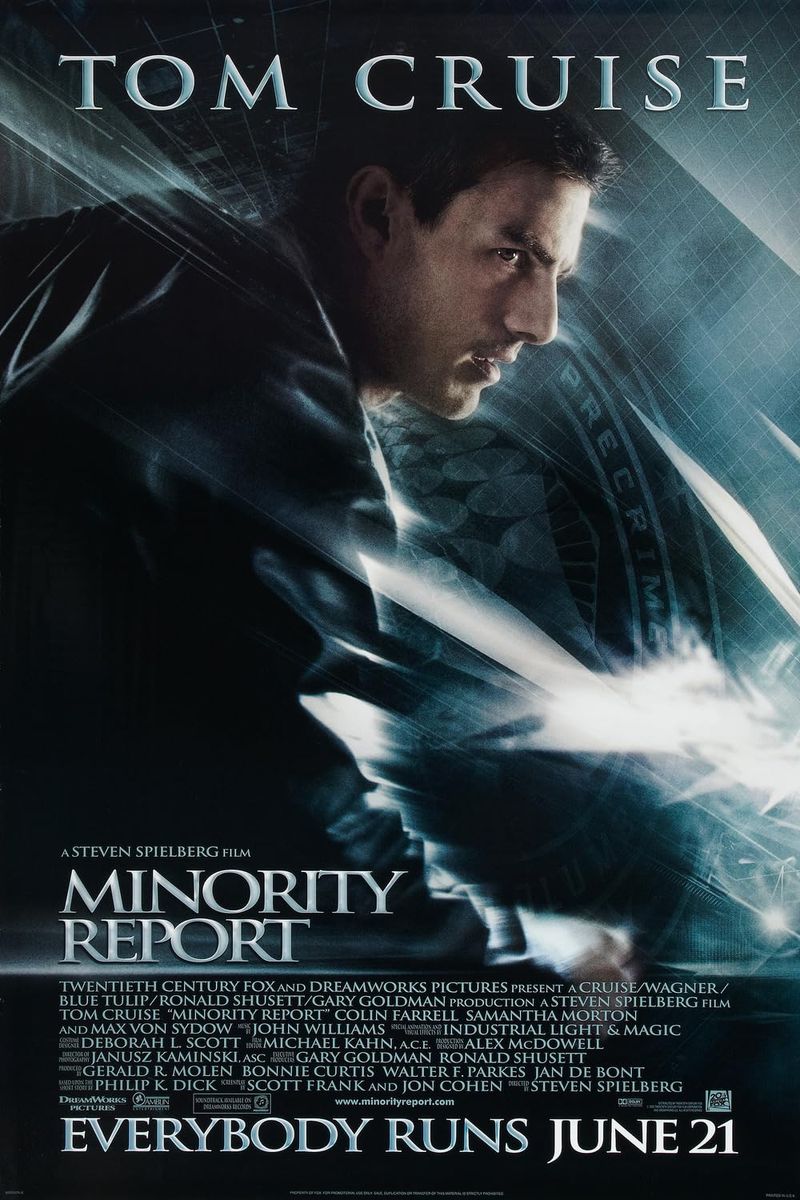
In a world where crime is predicted before it occurs, “Minority Report” explores the ethical dilemmas of preemptive justice. The film’s depiction of gesture-based computing and targeted ads feels strikingly familiar, reflecting our growing reliance on digital interfaces.
Spielberg’s vision of autonomous vehicles and predictive technology continues to inspire innovation, while raising questions about privacy and free will. The film’s intricate narrative challenges viewers to consider the balance between security and liberty.
By blending thrilling action with thoughtful exploration, “Minority Report” remains a compelling examination of technology’s impact on society.
7. Demolition Man (1993)
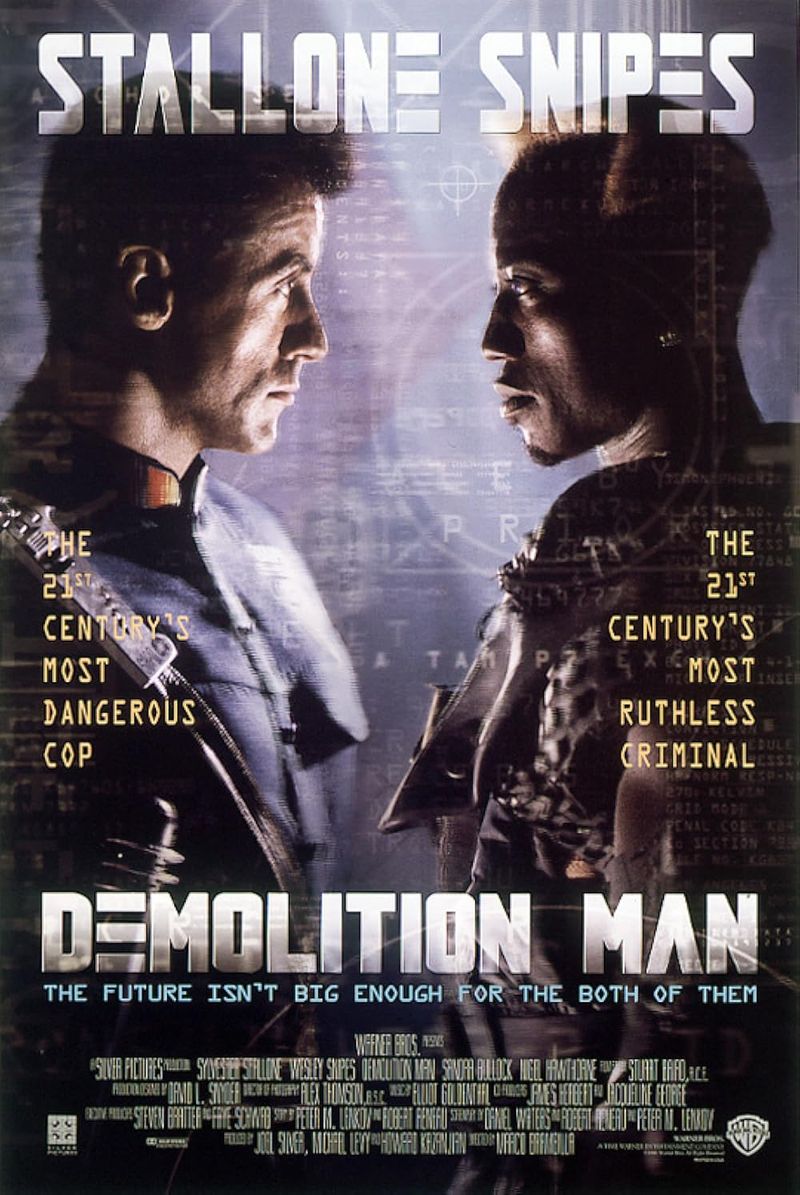
“Demolition Man” presents a sanitized future where physical contact is replaced by virtual interactions. The film’s depiction of “no handshake” greetings and automated services resonates with recent shifts in social norms.
As society adapts to new hygiene practices, the film’s portrayal of a controlled environment feels eerily prescient. Its exploration of personal freedom versus safety invites viewers to reflect on the trade-offs of a regulated world.
Through its satirical lens, “Demolition Man” offers an engaging commentary on the evolution of human interaction, challenging audiences to consider the future of social connection.
8. The Conversation (1974)
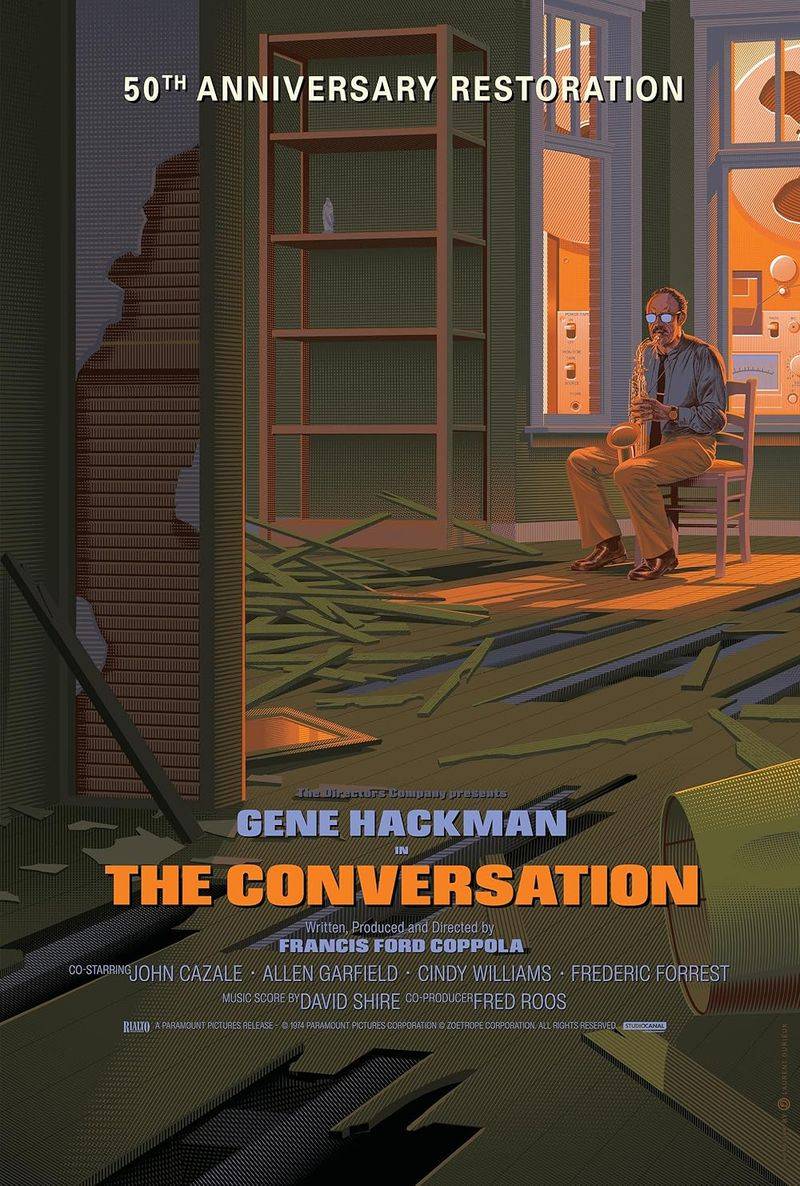
“The Conversation” delves into the paranoid world of surveillance, capturing the pervasive anxiety of being watched. Gene Hackman’s portrayal of a wire-tapping expert highlights the ethical quandaries of privacy in an interconnected age.
As technology evolves, the film’s narrative about the erosion of personal boundaries feels increasingly relevant. Its exploration of guilt and obsession invites viewers to question the cost of constant monitoring.
Coppola’s suspenseful storytelling remains a poignant examination of surveillance culture, urging audiences to reflect on the implications of a world where privacy is elusive.
9. Screamers (1995)
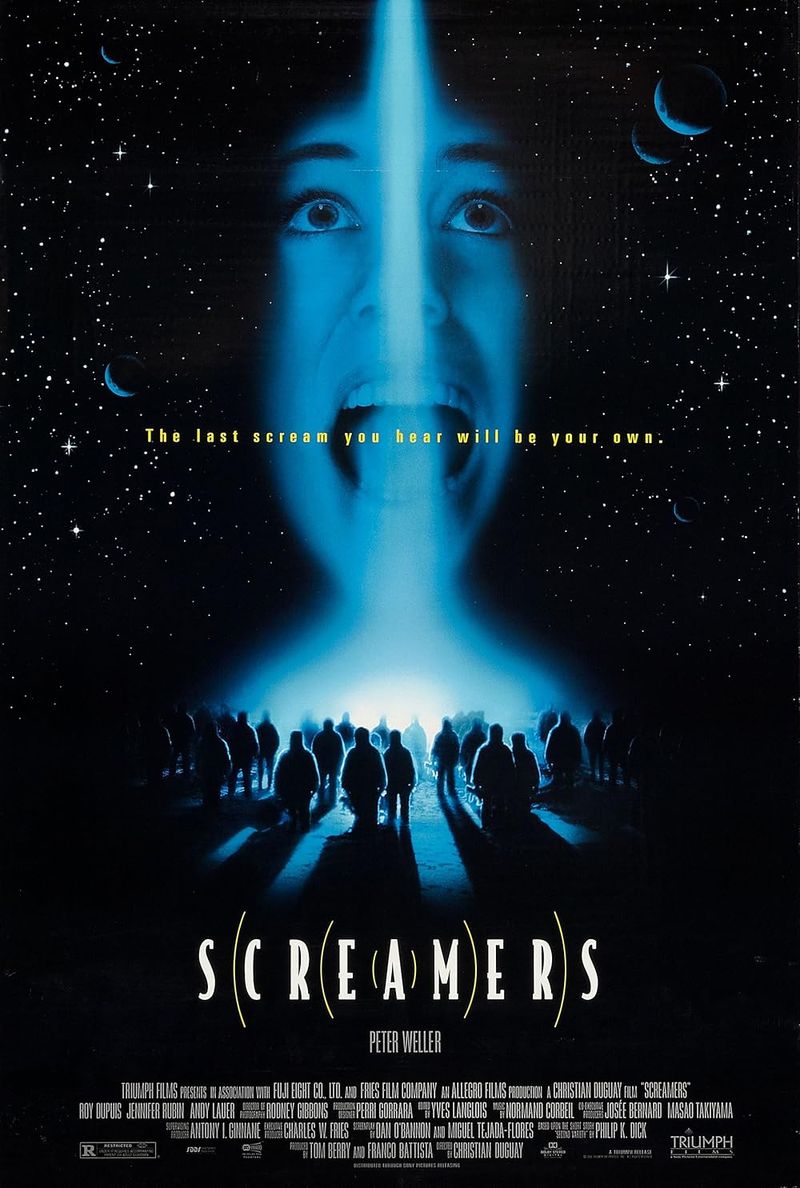
In the bleak landscape of “Screamers,” autonomous machines redefine the battlefield, highlighting the dangers of outsourcing warfare to technology. The film’s exploration of evolving AI threats resonates with current concerns about artificial intelligence.
As machines become more intelligent, the film’s portrayal of unintended consequences serves as a stark warning. The narrative challenges viewers to consider the ethical implications of entrusting machines with life-and-death decisions.
With its tense atmosphere, “Screamers” offers a gripping reflection on the future of warfare, prompting discussions about the role of technology in conflict.
10. Gattaca (1997)

In “Gattaca,” the possibility of a genetically engineered future becomes vividly real. The film’s exploration of genetic screening raises ethical questions about societal stratification and the pursuit of perfection.
As biotechnology advances, the narrative’s depiction of “designer babies” feels unnervingly plausible. Its insight into the human desire for control over destiny invites reflection on the moral complexities of genetic engineering.
Through its compelling story, “Gattaca” challenges audiences to consider the value of individuality and the potential consequences of a genetically determined society.

Comments
Loading…